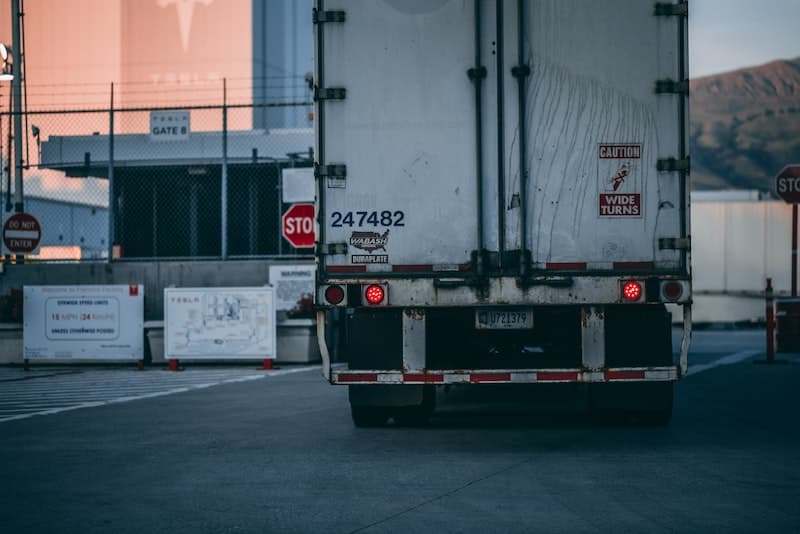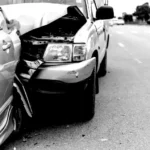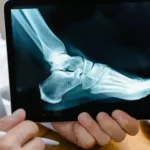When you work with an experienced attorney you can get money for your 18-wheeler accident in Houston. If you have been injured due to the negligent or reckless actions of a driver, contact our law office immediately. We work with you to take on big companies and predatory insurance adjusters to ensure you are getting the maximum compensation in your case.
Who Is Legally Responsible for a Trucking Accident?
Accidents involving commercial trucks are much more complicated than a typical car accident claim. In a typical two-car accident case, you might be able to sue the at-fault driver and file a claim with an insurance company.
In a commercial truck accident, you’ll probably be able to file claims against more people and companies, including the:
- truck driver
- truck driver’s employer
- owner of the truck
- cargo owner and loader, and
- truck maintenance company.
Not all commercial truck accidents involve all of these entities. For example, some truck drivers are independent contractors who own their own big rigs. (See below for more on employers and independent contractors.)
Truck Driver Liability
Commercial truck accidents happen for all kinds of reasons. Some accidents are caused by equipment failures, some are caused by faulty road designs or weather conditions, and some accidents are caused by driver errors. For example, a truck driver might speed to get to the next truck stop, make an unsafe lane change, or rear-end a car stopped in traffic. Drivers who are tired or under the influence of drugs or alcohol are more likely to make mistakes and cause accidents.
If the trucker who hit you was negligent (careless), you can bring an injury-related insurance claim or lawsuit against the driver after the accident. You’ll also want to look into other potentially liable parties, like the truck driver’s employer.
Is the Truck Driver’s Employer Liable?
A truck driver’s employer can be responsible for an accident caused by a truck driver under a legal theory called respondeat superior, meaning “let the master answer.” Under this theory, an employer can be liable for an employee’s actions if the employee was working at the time of the accident for the employer’s benefit. But trucking companies often try to avoid liability by arguing that the driver is an independent contractor and not an employee or that the driver wasn’t working at the time of the accident.
Let’s take a closer look at these arguments
Is the Driver an Employee or Independent Contractor?
Laws vary from state to state, but in order to show that a driver is an employee of the trucking company and not an owner-operator of a rig, you’ll need to focus on how much control the company has over the trucker’s schedule and ability to enter into contracts with other trucking companies. You’ll also want to look at how the trucking company pays the driver and who’s responsible for paying for the truck’s registration, permit, and insurance.
Courts and insurance companies will ask these questions and more to decide how much liability to assign to the driver and the trucking company.
For example, if a truck driver uses his own truck, buys his own gas, pays for his own liability insurance coverage, assumes the cost of repairs, gets paid on a “per route” basis, and receives no benefits from the trucking company, the driver is probably an independent contractor. But if the trucking company leases the truck from the driver, obtains the necessary permits, and controls the driver’s routes, the company will probably be responsible for accidents involving the truck.
When Are Drivers Acting Within the Scope of Employment?
For a trucking company to be liable, the truck driver has to be an employee who was working at the time of an accident for the employer’s benefit (or “acting within the scope of employment”). Courts tend to look at:
- the intent of the employee at the time of the accident
- the nature, time, and place of the employee’s conduct
- the type of work the employee was hired to do
- incidental acts the employer should reasonably expect an employee to do, and
- the amount of freedom an employee typically has in performing duties.
For example, if a truck driver rear-ends you while making a delivery, the driver’s employer will probably be liable for your accident-related losses because the truck driver was acting “within the scope of employment” at the time of the accident. But let’s say a truck driver leaves work early to go to a basketball game and hits you outside of the stadium. Here, the driver’s employer will argue that the company isn’t liable for the driver’s negligence because the driver wasn’t acting “within the scope of employment” at the time of the accident.
How Do Multiple Defendants Affect a Truck Accident Lawsuit?
When you (the “plaintiff”) file a personal injury lawsuit against more than one person or entity (the “defendants”), the defendants might be equally responsible for your losses (damages), or they might only be responsible for the portion of your damages they caused.
For example, a tired driver might share partial responsibility for an accident, along with the manufacturer of faulty tires. You can sue the driver (or the driver’s employer), as well as the tire manufacturer. The defendants will have to sort out their share of fault to reach a settlement or let the jury decide at trial.
What If the Driver’s Acts Were Intentional?
Generally, employers aren’t liable for intentional torts (like assaults) committed by employees. Employees are typically not acting “within the scope of employment” when they punch customers in the face, for example, or steal credit card information.
So, if a truck driver slams into you because you are sleeping with the truck driver’s spouse, the trucking company probably isn’t liable for the truck driver’s actions.
State and Federal Trucking Regulations
Truck drivers, owners, and manufacturers must comply with state and federal regulations. Regulators control how much weight a rig can haul, how long a driver can go without rest, and many other aspects of the trucking industry.
When a commercial truck is involved in an accident, there is a good chance that a state, federal, or local law was violated. Proving a violation of law greatly increases an injured person’s chances of winning an insurance settlement or in court.
State and federal regulations typically require truck drivers and owners to have more insurance than non-commercial drivers. Defendants who have higher insurance policy limits have deeper pockets are more likely to be able to compensate you for the full value of your claim.
Spanish Speaking Car Accident Lawyer in Houston, Texas
Spanish-speaking individuals can have a more difficult time seeking justice in their personal injury cases due to language barriers. This causes them to not take action against those who have left them with financial devastation and physical trauma. At the Law Office of Beverly R. Caruthers, our team refuses to let a language barrier affect your right to justice and compensation. If you or someone you love has been injured in an accident and is in need of Spanish-speaking legal advice, our team is here for you.
Get Money for Your 18-Wheeler Accident in Houston With a Personal Injury Lawyer
If you or someone you love has been involved in a car accident and suffered an injury, experienced loss of income, or are unable to work due to a car accident, you can benefit from the services of a Houston car accident expert in your personal injury case. Whether you missed work due to an injury or due to not having access to a vehicle, Attorney Beverly R. Caruthers can help you!
Caruthers Law Firm
Address: 4141 Southwest Fwy, Suite 400
Houston, TX 77027
(713) 526-9557
View our Website
View our Facebook page
View our Google Listing






